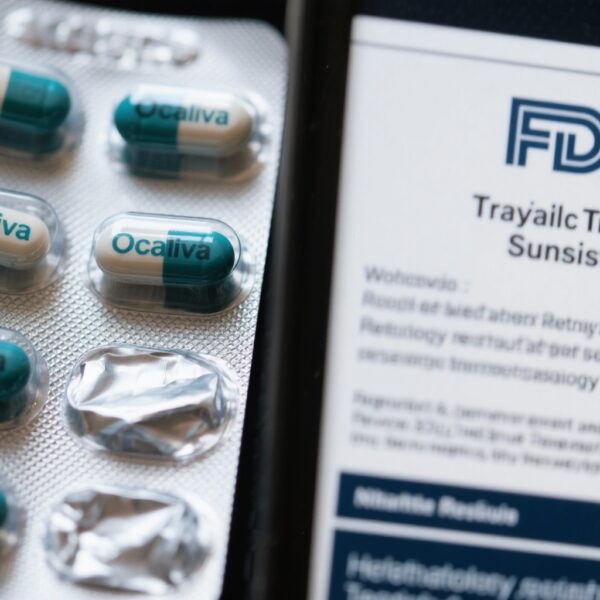Study Background and Disease Burden
Immunotherapy has revolutionized oncology by harnessing the patient’s immune system to target cancer cells. Immune checkpoint inhibitors (ICIs), targeting molecules such as PD-1/PD-L1, have shown remarkable efficacy in various malignancies. However, a significant subset of patients does not achieve durable clinical benefit due to primary or acquired resistance. Enhancing the antitumor immune response remains a critical challenge.
Local tumor ablation techniques, particularly cryoablation, destroy tumor cells via freezing, leading to cellular necrosis and subsequent release of tumor-associated antigens. This antigen liberation can stimulate a systemic antitumor immune response, a phenomenon termed the “abscopal effect.” Combining local ablation with immunotherapy is an emerging approach to potentiate immune activation and overcome immunotherapy resistance.
Despite promising preclinical data, clinical evidence on the synergistic effects and safety of combining intratumoral immunotherapy with cryoablation remains limited, particularly in heavily pretreated metastatic solid tumors where treatment options are scarce.
Study Design
The Abscopal 5001 is a first-in-human, open-label, phase II clinical trial (NCT04713371) to evaluate the safety and efficacy of Multiplex Intratumoral Immunotherapy (MITI) combining CT-guided cryoablation with intratumoral injection of RPT-01-5001 in patients with metastatic solid cancers who have failed standard therapies.
The investigational therapy, RPT-01-5001, is a compound formulation containing low-dose immune checkpoint inhibitors and cyclophosphamide. Patients received low-dose oral cyclophosphamide 3-5 days prior to treatment to modulate the immune microenvironment by reducing regulatory T cells. Following localized cryoablation of tumor lesions under CT guidance to induce tumor antigen release, patients underwent intratumoral injection of RPT-01-5001. Additionally, patients received daily subcutaneous injections of GM-CSF over four weeks to enhance dendritic cell maturation and improve antigen presentation.
The study enrolled 12 patients with various metastatic solid tumors, including prostate cancer (n=4), soft tissue sarcoma (n=2), and single cases of breast, colon, bladder, cervical, tongue, kidney cancers, and sacral chordoma. All participants had refractory disease after standard treatments.
Treatment cycles lasted four weeks, with a maximum of three cycles administered if disease control or response was observed. Tumor response was assessed per international iRECIST criteria, supplemented by pathological examination of biopsies to address discrepancies between imaging and histology.
Key Findings
All patients completed the treatment protocol safely, with good tolerability. Most adverse events were grade 1 to 2, reported in 69% of participants; grade 3 delayed cryoablation-related complications occurred in 15%. No treatment-related mortality or severe systemic toxicities were observed. Patients were typically discharged within two hours post-procedure.
Efficacy outcomes showed encouraging activity of MITI: 7.7% (1/13) achieved complete response (iCR), 30.8% (4/13) partial response (iPR), and 38.5% (5/13) had stable disease (iSD), yielding an overall disease control rate of 77%. Interestingly, histopathological analysis in four cases revealed markedly fewer or absent cancer cells despite imaging showing residual lesions, indicating conventional radiographic assessments may underestimate true treatment efficacy.
The tumor response at the injected site was 69%. Notably, 31% of patients exhibited an abscopal effect characterized by regression of distant metastases. Exemplary cases include a sarcoma patient with complete clearance of pulmonary metastases and a bladder cancer patient with biopsy-confirmed disappearance of lung and liver metastases.
Survival analysis indicated a median progression-free survival (PFS) of 5.4 months (95% CI, 1.8–23.1 months) and a median overall survival (OS) of 20.9 months (95% CI, 9.1–22.8 months), suggesting a meaningful survival advantage in this late-line patient population.
Mechanistic Insights and Expert Commentary
The combination leverages multiple immunological mechanisms: cryoablation induces direct cytotoxicity and tumor antigen release, functioning as an in situ tumor vaccine. The low-dose checkpoint inhibitor in RPT-01-5001 alleviates tumor-induced immune suppression while the adjunct low-dose cyclophosphamide diminishes regulatory T cells that mediate immune tolerance. GM-CSF promotes dendritic cell activation, thereby enhancing antigen presentation and T cell priming.
This tri-modality coordination amplifies local immune activation, ultimately triggering systemic immune responses which manifest as abscopal tumor regression, reported here in nearly one-third of patients. Such clinical evidence substantiates the immunobiological rationale for combining local ablation and immunotherapy.
While limited by small sample size and heterogeneous tumor types, the study demonstrates feasibility and a favorable safety profile, encouraging further exploration. The dissociation between imaging and pathology underscores the need to refine response assessment paradigms in immuno-oncology trials.
Conclusion
This phase II trial of Multiplex Intratumoral Immunotherapy (MITI), integrating cryoablation, intratumoral low-dose checkpoint blockade, cyclophosphamide, and GM-CSF, offers a promising salvage treatment for patients with advanced metastatic solid tumors refractory to standard therapies. The approach achieved a high disease control rate, elicited notable abscopal effects, and extended median overall survival to over 20 months.
These findings highlight the potential of multi-mechanistic immune modulation to overcome immunotherapy resistance and improve outcomes in difficult-to-treat cancers. Future studies should validate efficacy in larger, tumor-specific cohorts, optimize dosing regimens, and incorporate biomarker-driven patient selection. Additionally, developing more accurate combined radiologic-pathologic response criteria will be critical to appropriately gauge therapeutic benefit.
This innovative combination strategy marks a step forward in expanding the therapeutic armamentarium against metastatic cancers and illuminates the translational pathway of integrating local tumor destruction with systemic immune modulation.
References
Bostwick DG, Wilk MM, Bostwick BR, Miller N, Rajaratnam EC, Qian J, Rydesky PM, Littrup PJ. First-in-Human Phase II Clinical Trial of Multiplex IntraTumoral Immunotherapy (MITI) in Patients with Metastatic Solid Cancer (Abscopal 5001 Trial). Cancers. 2025;17(18):2990. https://doi.org/10.3390/cancers17182990
Postow MA, Callahan MK, Barker CA, et al. Immunologic correlates of the abscopal effect in a patient with melanoma. N Engl J Med. 2012;366(10):925-931. doi:10.1056/NEJMoa1112824
Golden EB, Frances D, Pellicciotta I, Demaria S, Barcellos-Hoff MH, Formenti SC. Radiation fosters dose-dependent and chemotherapy-induced immunogenic cell death. Oncoimmunology. 2014;3(4):e28518. doi:10.4161/onci.28518



